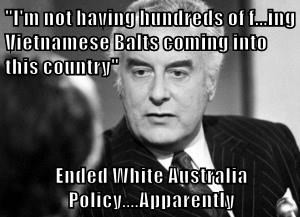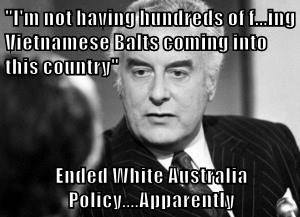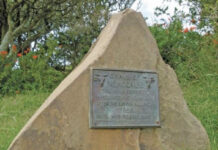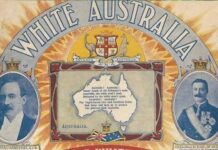When American psychiatrist Elisabeth Kübler-Ross wrote her seminal work On Death and Dying in 1969, she was seeking to meet a deeply felt individual need that had arisen out of her extensive clinical work with the terminally ill. Having become aware that there was a distinct lack of educational material on a matter common to all humanity, death and dying, Kübler-Ross sought to fill the void, not only for the benefit of professionals working in the field, but also to provide a pragmatic resource and guide for individuals, and their families, dealing with a terminal illness. Based on her observations of dying patients, Kübler-Ross outlined a five stage hypothesis for grief – denial, anger, bargaining, depression, acceptance – that has been highly influential in a variety of fields, ever since the appearance of On Death and Dying in 1969.
 Whilst recognizing that not everyone passing through the crucible of a life threatening illness will exhibit the same stages, and that they may take place in any order, the stages of grief outlined by Kübler-Ross have been received as authoritative across disciplines, and are now sometimes applied, not just to terminal illness and death, but to any form of catastrophic personal loss. Whilst the focus has been on individual, and to some extent familial loss, the five stages can also be seen as applicable to instances of corporate loss and grief, affecting institutions and communities, and even whole nations.
Whilst recognizing that not everyone passing through the crucible of a life threatening illness will exhibit the same stages, and that they may take place in any order, the stages of grief outlined by Kübler-Ross have been received as authoritative across disciplines, and are now sometimes applied, not just to terminal illness and death, but to any form of catastrophic personal loss. Whilst the focus has been on individual, and to some extent familial loss, the five stages can also be seen as applicable to instances of corporate loss and grief, affecting institutions and communities, and even whole nations.
A recent, verifiable example of this latter phenomenon, is the corporate response of the ABC to the death, on 21st October 2014, of former Australian Prime Minister Gough Whitlam. The passing of the man who had held the highest political office in the land for just short of three years between 1972 and 1975, was met with all but unprecedented blanket coverage across the national broadcaster’s vast network of media, and an outpouring of grief, at both an institutional level, and at a personal level among individual broadcasters and journalists, that would have provided Dr. Kübler-Ross with more than enough material for a second volume.
The trauma the death of Mr Whitlam visited upon the ABC is of such magnitude as to make for an interesting case study in the application of Kübler-Ross’s five stages of grief to a whole institutional or organization. We proceed to that task now, with appropriate sensitivity, and mindful of the personal sense of loss, and ongoing grief, still being experienced by the ABC and its employees.
1. DENIAL
The first stage of grief identified by Dr. Kübler-Ross is denial. Usually this accompanies a dreadful diagnosis, or sudden loss, and is frequently spontaneous. Given that Gough Whitlam was 98 when he died, it would be difficult to receive his passing as unexpected or unanticipated, nor hard to accept and believe. When it came to commentary on his place in Australian political history, the reality of the government he led, and its alleged achievements, the word denial was, however, a frequently adequate descriptor for much of the eulogies delivered by ABC presenters and interviewees, not to mention a deluge of callers to talk back radio and other like forums, on the day of his passing in particular.
In Elisabeth Kübler-Ross’s schema, denial describes the attempt to shut out what is known to be factually true and to instead construct an alternative, preferred, reality. Devotees of Whitlam and his government have, in fact, been doing this ever since the dismissal in 1975.
The historical facts concerning the brief reign of the Whitlam government are a matter of record. Gough’s administration was plagued by dysfunction and incompetence, to the extent that, with the nation facing economic catastrophe, he was unceremoniously dismissed by the Governor General on Remembrance Day 1975. Whatever one’s view might be of the constitutional or political merits, or otherwise, of the dismissal, the facts are that, when the voters got to have their say shortly afterwards, the result was ugly. The people went to the polls as soon as practical after the dismissal, on 13th December 1975. Whitlam, and the Labour party, called upon voters to “maintain the rage.” The objects of said rage were, for them, the Governor General and the Liberal Party, however the voters saw it rather differently. The Liberal party won 55% of the vote, received a swing of 7.4%, and won a massive 30 new seats, leaving it with 91 seats to Labour’s 36 in the new parliament. When Gough tried again in 1977, the result was similar.
Only a determined state of perpetual denial could not view the Whitlam era as an unmitigated political disaster, nor pretend that the voters of Australia had not categorically, and brutally, rejected the Whitlam agenda, not only once, in 1975, but again in 1977. But this was not so for the ABC and its fellow travelers and mourners, for in its worldview, the proletariat are the moronic puppets of Rupert Murdoch, and the opposition, who actually won the election, not only illegitimate despite the resounding vote, but verifiable political pygmies compared to the colossus that is (was) Gough. He may have lost in a landslide (twice), but he was still the greatest Prime Minister, if not the greatest Australian, ever, according to the long line of guests who filled the airwaves on ABC radio throughout the day of his passing, and in the days following. The reality was somewhat different, as painfully, if bluntly, outlined by Greg Sheridan, in The Oz, within 24 hours of Gough’s passing.
“Whitlam’s economic record was ruinous. He produced massively increased unemployment, the highest level in Australia since the great Depression. Inflation got above 20 per cent at one stage. This was partly influenced by the international oil shocks but the outcome in Australia was much worse than in comparable countries. In 1974-75, government spending increased by 40 per cent, plainly a state of madness. Tax increased by 30 per cent. It wasn’t just that Whitlam was uninterested in economics, his economic policies were catastrophic and took many years to recover from.”
Others gave similar, sober, and accurate testimony – Gough Whitlam was a great Australian, no doubt about it. But he was a disastrous Prime Minister, the worse in Australian history by a long margin – until the Kevin and Julia show at least. None of this penetrated the veneer of deep denial into which the ABC had entered on 21st October.
2. ANGER
When the current Prime Minister, Tony Abbott, and the second longest serving Prime Minister in Australian history, John Howard, stepped out of their cars in front of the Sydney Town Hall, en route to the memorial service for Gough Whitlam, some in the crowds outside behaved like rival supporters at a football match, jeering, booing, and shouting “shame.” One gets the impression it would not have surprised either man – both have been on a Q&A panel before. The memorial service received saturation broadcast across the ABC – online, television, radio – if it had been possible, it’s hard to avoid the assumption the ABC would been beamed it into outer space too, on the off chance that extra-terrestrial life forms did exist and, if so, would of course want to tune in.
Within minutes of its conclusion, no less a figure than the managing director himself, Mr Scott, was proclaiming on Twitter that the full video was uploaded on iview. The teenagers must have been stretching the capabilities of the nation’s severs as they instantly logged out of instagram and tumbler, in digital stampede for the ABC’s iview. Of course, the vast majority of Australians, who hold down real jobs, would have missed the memorial day spectacle with its rude crowds, but might have caught up with it later in the day, on the evening news, and marveled at the bad manners, rudeness, and sense of righteous anger at work among the Gough admirers.
If the same majority had ever mistakenly dwelled on Q&A whilst channel surfing for alternatives to Big Brother, they might have caught a glimpse of the announcement of the death of former (Conservative) British Prime Minister Margaret Thatcher, which was announced live on Q&A, compelling one panelist (a visitor from England whose claim to fame seemed to have involved the glamorization of prostitution), to remark “and me without champagne.” This went unchallenged by the host, and drew laughter (of course) from the audience. One can only contemplate how a similar reaction by a conservative commentator (say Andrew Bolt or Tim Blair) might have been received upon news of Gough’s passing, or what the reaction would have been if a future crowd gathered at the front of St Andrew’s cathedral for John Howard’s funeral had jeered Ms Gillard as she arrived to pay her respects.
The unedifying orgy of hatred that accompanied Mrs Thatcher’s death in Britain demonstrated the sense of righteousness that pervades the political left across the western world. Whilst demanding respect and an inflated sense of achievement upon the death of one of their own heroes, they, conversely (generally speaking), experience a narcissistic sense of entitlement to not only mock and slander, but to actually celebrate, the death of an elderly woman whose political persuasion they oppose, the very moment her passing was made known. So ‘Ave’ to the deified Gough Whitlam, but ‘ding dong the witch is dead’ to Mrs Thatcher. One sent his country broke and was rejected by voters in a landslide (twice), the other crashed through the glass ceiling to be the first woman to hold the top office in the land and led a stable, successful administration. But it’s hard for the angry and embittered to acknowledge, let alone accept, the historical record, especially when still passing through the crucible of denial.
3. BARGAINING
The third stage of grief holds out the hope that the actual reality can, in fact, be replaced by the false, constructed one, before it is too late. In the days immediately following Gough’s passing the ABC filled its lead news programs, like The 7.30 Report and Lateline, and day time radio programs, with eulogists, former comrades, and other assorted Labour types, most of whom were given a free microphone to slander the Menzies era in particular, and attribute just about every social and political reform since federation to Gough. Especially memorable was Kevin Rudd’s misty eyed recollection of the world Gough opened for him as a young man growing up in rural Queensland, whilst especially distasteful was the typically conceited use of Whitlam’s legacy by, at best, moderately successful Prime Minister Paul Keating, as an entrée to smear the record of a truly great Prime Minister in Sir Robert Menzies. None of this was challenged, of course, by the ABC hosts and presenters concerned.
The bargaining away of reality reached new heights of absurdity on Radio National, when presenter Linda Mottram actually said, in response to a caller’s hagiography, “so there is nothing he [Whitlam] wasn’t responsible for? Fantastic stuff.” One wonders what she might have had in mind – was Gough somehow vicariously responsible for the splitting of the atom, the discovery of penicillin, the invention of the wheel?
It wasn’t long before the Whitlam legacy was being manipulated to speak to contemporary political issues, with Gough’s political genius being appropriated at will, sans facts. So-called “human rights” lawyer and professional moral poseur, Julian Burnside QC, told the ABC that “boat people who manage to get to Australia are mistreated in every possible way as if somehow that will make us feel better or safer,” assuming that things would have been different had Gough remained in power – “Whitlam was a colossus but a survey of today’s political landscape shows we are led by midgets.” The reality was, as Greg Sheridan noted in the Oz, “Whitlam acted with conspicuous cruelty towards the Vietnamese who had worked with Australian forces and Australian diplomats during the war,” and was stridently opposed to Vietnamese migration in particular during his final year of office.
A sense of “if only” pervaded the commentary as the ABC moved from denial, to a retrieval of, and bargaining for, its hero’s political legacy. ABC favourite David Marr, writing in The Guardian, pointed to the sense of unfulfilled hope that pervaded the memorial service: “the more speakers eulogised his achievements, the more pressing the question: what might he have done if he had been allowed more time?” Sent the country into complete and utter economic ruin, rather than just catastrophic economic ruination, leaps to mind; but in any case David, the voters (remember), when given the opportunity, called time on the Whitlam era, quite emphatically as it happened. That is democracy for you! Nonetheless, on the day of his passing, Peter Lewis was already asking, on The Drum, “What would Gough have done?” He probably didn’t know it, but it was unmistakably close to a parody of the Christian campaign of recent memory – “What would Jesus do?” Or maybe he did. Lewis mused for the ABC faithful:
“Today of all days, as we huddle in our self-proclaimed fortress warding off terrorists and asylum seekers, wondering if climate change even exists and hoping Ebola will look after itself, it is worth asking – what would Gough have done?”
The accompanying poll, asking if the Australian government was, in fact, doing enough to combat the ebola outbreak in Africa, was showing that 58% thought the answer yes and a further 21% were not sure, whilst only 21% thought the government was not doing enough. It seemed eerily fitting that the implied assertion that Gough would have acted differently to the current federal government, was so obviously contrary to the majority view, and this among ABC’s own readership. It’s hard to bargain away common sense, but those passing through this stage of the grieving process will normally try.
4. DEPRESSION
It is natural for there to be sense of sadness, regret, and disappointment, during this fourth stage of grief, as the new reality sets in, and the world begins to look and feel a little differently. Over at the SMH (the “Sneering Morning Herald”) Michael Pascoe was lamenting, within hours of the great man’s death, “what our nation has become” and, injecting a heavy dose of leftist self loathing, suggesting that we were not collectively mourning Gough (he was 98 after all), but ourselves.
The SMH was leaping through the stages of grief to depression, with the ABC still stuck in denial, but it would catch up. One after another, ABC columnists, contributors, and presenters lamented the current state of politics, and compared, unfavourably of course, today’s political leaders to Gough. Press gallery veteran, and Whitlam devotee, Mungo MacCallum, provided the high watermark in this endeavor. Writing on the ABC’s The Drum, Mungo contrasted Whitlam to the current crop of politicians in exalted, if not messianic, terms: “he was, for me, the only politician worth dying for. We are unlikely to see anyone like him in these troubled times – they say no one is irreplaceable but show me the replacement.”
At last check, and despite his deep depression and assertion that Gough Whitlam was a politician worth dying for, Mungo was alive and well, but perhaps under round the clock surveillance by concerned family and friends. This stage in the grieving process, depression, is often the most dangerous. But most do come through it, albeit with a sense of emotional detachment, making then the final stage of the journey, to acceptance, and closure.
5. ACCEPTANCE
The final stage of grief brings with it a new, and often calm, acceptance of the changed reality, and a tendency to exaggerate, and overstate, the past achievements of the object of one’s grief. The sense of handing down, or passing on, a legacy to those who will come later, brings with it an acceptance of one’s own mortality and the finality of death. The family, friends and supporters of the dying person will assist by emphasizing his or her achievements, and overlooking the flaws and weaknesses, much in the same way a eulogy might later be constructed and delivered. Error is glossed over, and exaggeration normal, in this final stage of the grieving process.
So ABC news in Sydney could put to air (without editorial adjustment or comment) the assertion of a high school student that “women were able to get the vote during Gough Whitlam’s reign” despite the fact women first voted at an Australian election in 1903, well before Gough was born (unless, of course, the ABC is asserting that he had a pre-existence). Shortly afterwards Labor MP Catherine King was proclaiming on Q&A that “we’re all Gough’s legacy,” and Cate Blanchet told the State memorial service she was the beneficiary of a free education, courtesy of Gough, even though university fees were reintroduced by the Hawke Labor government around the time she entered tertiary education. Completely ignored, in any case, was the fact that abolishing university fees made not a shred of difference to the socio-economic profile of those entering the tertiary system – all it did was enable the middle and upper classes, who could have paid their own way, to pass through at the taxpayer’s expense.
The ABC reporter inside the memorial service in Sydney then capped it all off beautifully by describing the experience in quasi-religious terms – “there was this overwhelming, palpable feeling of adoration and warmth, and a sense of belonging that erupted among the crowd inside.” Finally, a week after the great man’s death, the ABC news app then carried the headline “In Gough we trust – we reflect on a political titan who inspired faith on a national and a personal level,” pointing to the organisation’s hope, no doubt, that the reign of Gough might continue in some supra-natural form, in the years to come.










